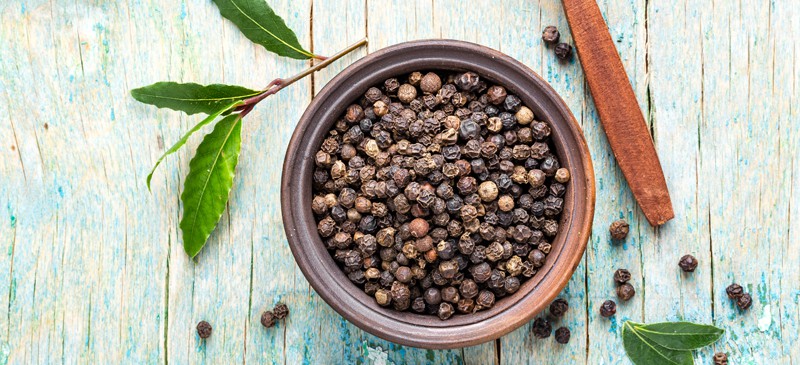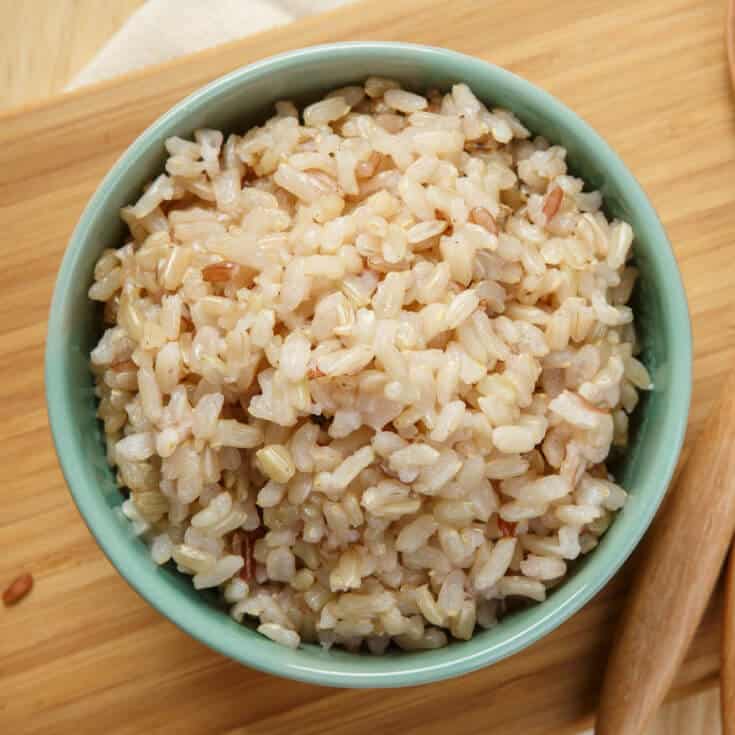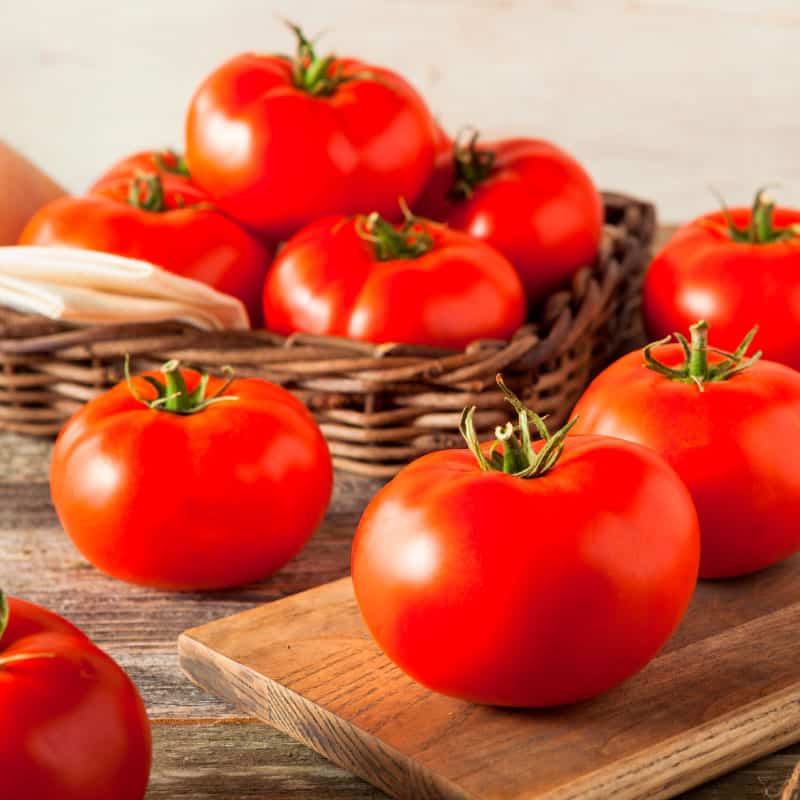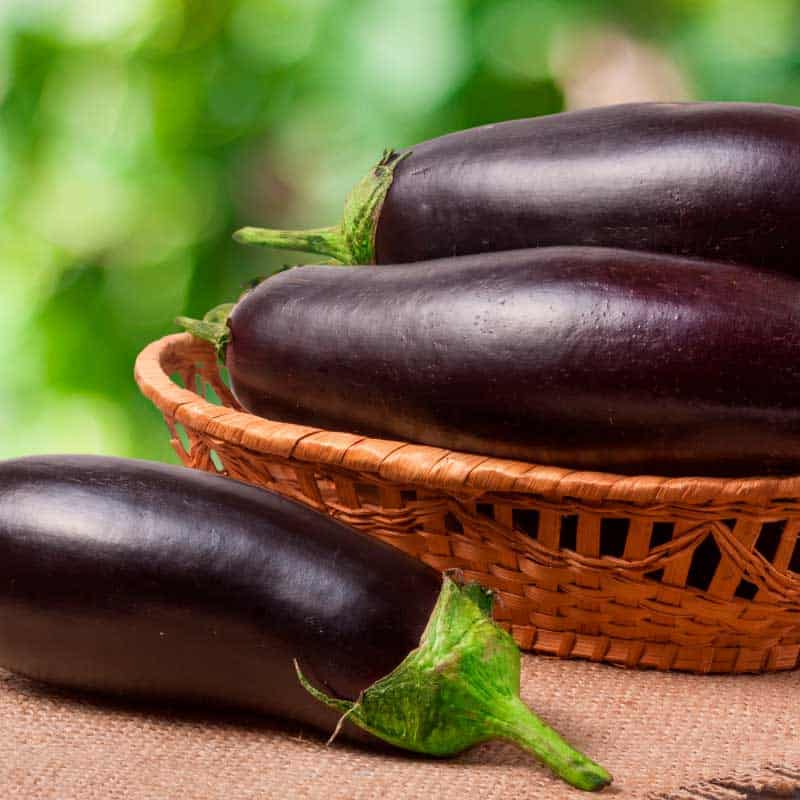This Dr. Axe content is medically reviewed or fact checked to ensure factually accurate information.
With strict editorial sourcing guidelines, we only link to academic research institutions, reputable media sites and, when research is available, medically peer-reviewed studies. Note that the numbers in parentheses (1, 2, etc.) are clickable links to these studies.
The information in our articles is NOT intended to replace a one-on-one relationship with a qualified health care professional and is not intended as medical advice.
This article is based on scientific evidence, written by experts and fact checked by our trained editorial staff. Note that the numbers in parentheses (1, 2, etc.) are clickable links to medically peer-reviewed studies.
Our team includes licensed nutritionists and dietitians, certified health education specialists, as well as certified strength and conditioning specialists, personal trainers and corrective exercise specialists. Our team aims to be not only thorough with its research, but also objective and unbiased.
The information in our articles is NOT intended to replace a one-on-one relationship with a qualified health care professional and is not intended as medical advice.
Black Pepper Benefits for Fighting Cancer, Liver Problems and More
April 29, 2019

You may not be aware that an item that is in your kitchen right now might have one of the most impressive lists of health benefits out there. But it’s true: the black pepper sitting innocently in your shaker is an incredibly powerful little spice used for millennia to heal the sick.
Can you eat black pepper? Obviously, the answer is yes. Should you eat it? Absolutely!
This spice is ground from peppercorns and is used to make black pepper essential oil. Officially known as Piper nigrum, it has been a tenet of Traditional Chinese Medicine (TCM) and Ayurvedic medicine for thousands of years. As research catches up to these well-known benefits, it turns out that black pepper deserves all that hype.
What are the benefits of black pepper? According to reviews of scientific evidence, black pepper health benefits range from major antioxidant and anti-inflammatory properties to antitoxic ability (in the colon), tumor killing, thyroid support, treatment of the common cold, fever reduction and many more. (1)
How does Piper nigrum achieve all of this? Well, the active ingredient responsible is piperine. Black pepper contains volatile compounds, oleoresins and alkaloids which create a powerful plant, particularly for reducing oxidative stress. Another review of its powerful benefits states that, “The key alkaloid components of Piper nigrum, that is, piperine, assist in cognitive brain functioning, boost nutrient’s absorption and improve gastrointestinal functionality.” (2)
Let’s look at some of the most impressive black pepper health benefits and help you see why you should be utilizing it more.
Black Pepper Benefits
1. Might Help Fight or Prevent Cancer
It’s been thought in traditional systems of medicine that black pepper was an important anti-cancer ingredient, and it seems this is likely true. Piper nigrum has anti-tumor and immune system actions that make it potentially very powerful against cancer. (3)
In a laboratory study, turmeric with black pepper was tested against breast cancer cells. Curcumin, the active ingredient in turmeric, and black pepper were effective at killing malignant cells, both together and separately. (4)
Both black pepper and curcumin side effects are negligible, even though they have the ability to kill mutated cells. This is what sets them apart from common cancer treatments, such as chemotherapy. Even with the tumor-killing activity of black pepper extract/piperine, healthy cells are safe. (5)
Many turmeric/curcumin supplements include black pepper to increase effectiveness and absorbability of the active ingredients, but I’ll touch more on that below.
Related: Turmeric and Black Pepper Weight Loss Benefits and More
2. Protects the Liver
Another TCM and Ayurveda use of black pepper is for protection of the liver. A 1993 lab study found that it protected the liver from damage caused by oxidative substances and helped the liver cells maintain its level of glutathione (GSH), an important antioxidant that is often depleted by damage to liver function. (6)
3. Antioxidant, Anti-Inflammatory and Antibacterial
One of the most important factors in long-term health is chronic inflammation, which is at the root of most diseases. (7) The standard American diet (SAD) is centered around habits that drive up inflammation, which is why an anti-inflammatory diet is important to preventing disease.
Similarly, oxidative stress and bacterial growth within the body can get out of control and lead to a number of conditions. All three of these processes are supposed to happen within the body, but only to certain degrees before their impact can be seen.
Black pepper and its active compound, piperine, help to reduce inflammation, fight oxidative stress, increase antioxidant concentrations in the body and kill many different kinds of bacteria that may lead to disease. (8, 9, 10, 11)
In particular, black pepper may be effective against oral bacteria that lead to conditions such as gingivitis, oral thrush and cavities (dental caries). (11)
4. Could Fight Depression
While many drugs out there fight depression, the side effects of antidepressants and their related withdrawal symptoms make them unattractive to many in the natural health world. The good news is that many dietary and supplement options exist that can drastically impact depression.
Although only proven in animal research to date, black pepper may act as a natural remedy for depression when used properly. (12, 13) This effect may be increased when it is used with turmeric. (14)
5. Part of An Epilepsy Diet
Did you know that epilepsy can be naturally treated with diet? Black pepper is part of a diet for epilepsy, according to Traditional Chinese Medicine. In TCM, radishes and black pepper are used to powerfully block convulsions. (15)
6. Good for the Gut
Ancient medicine also calls for black pepper in the case of certain digestive problems. Capsaicin, the spicy compound in peppers, is another gut-protecting ingredient. Both capsaicin and piperine affect the TRPV1 receptor in the gut, which signals the production of chemicals in the brain and body to counteract pain and improve digestion.
Capsaicin is great for your gut, but your TRPV1 receptors eventually become desensitized to the pain from spiciness and its impact on your gut processes. Introducing more black pepper helps to re-sensitize the receptors and maximize the impact of spice. (16)
7. May Help with Alzheimer’s and Overall Brain Health
In two research studies, subjects had significantly increased cognitive function after piperine was introduced into the diet. One study was specifically designed as a model for Alzheimer’s and resulted in “significantly improved memory impairment and neurodegeneration in hippocampus.” (17)
The other, a more generalized study, discovered that piperine improved cognition significantly (as well as reducing signs of depression). (13)
A 2006 clinical examined another feature of brain impairment that happens to the elderly: the loss of reflexive swallowing following stroke. When the brain experiences such extensive death, it’s not uncommon to lose basic reflex function like this. Inhaling black pepper essential oil helped reduce dysphagia symptoms (the clinical name for this condition) regardless of all other factors. Researchers believe it’s due to the ability of black pepper oil to “activate the insular or orbitofrontal cortex.” (18)
8. Lowers Blood Pressure
Is black pepper good for high blood pressure? When you ingest piperine, it may help to counteract other factors that would otherwise increase blood pressure, which can eventually lead to heart disease. (19)
9. Possible Smoking Cessation Aid
Quitting smoking? A clinical trial revealed that using inhalable cartridges of black pepper oil reduced cravings for people who were trying to quit. The control cartridge containing no additional ingredients and the other tested cartridge with menthol had no significant impact on cravings in this study. (20)
Nutrition Facts
There’s a lot of nutrient density packed into just a tiny bit of black pepper! One teaspoon of black pepper, about 2.3 grams, contains: (21)
- 5.8 calories
- 0.1 grams of fat
- 0.5 milligrams sodium
- 1.5 grams carbohydrate
- 0.6 grams fiber
- 0.2 grams protein
- 0.3 milligrams manganese (15 percent DV)
- 3.8 micrograms vitamin K (5 percent DV
- .03 grams copper (2 percent DV)
Uses
1. Add Flavor to Food
It may seem obvious, but the number one way to get more black pepper is to use it in food. It’s one of the most versatile spices you can use, and it’s incredibly useful for your body, so — pepper away.
Adding it to many dishes will also help with nutrient absorption, so you’ll be able to absorb and metabolize more of the nutrients you’re eating each time you grind some pepper on top. (22)
2. Increase Supplement Absorbability
Some high-quality supplements will use a formulation known as trikatu to increase the absorbability of the ingredients they contain. Trikatu is an Ayurvedic method of combining black pepper, long pepper and ginger to help your body get more nutrients. Especially when you’re looking at herbal and mushroom supplements for things like lion’s mane mushroom, ashwagandha and turmeric, it’s recommended to look for a blend that includes these elements.
Black pepper greatly increases the bioavailability of curcumin, the active compound in turmeric. (23, 24) And what are the benefits of turmeric and black pepper? Together, they make a cancer-, inflammation- and oxidation-fighting powerhouse. Using black pepper also helps to increase CoQ10 absorption. (25) The same is likely to hold true for many other supplement ingredients.
3. Diffuse or Use Internally
Black pepper essential oil is a popular essential oil that is believed to provide relief from aching joints, improve cholesterol levels and detoxify the body.
Role in Ayurveda and Traditional Chinese Medicine
As I’ve mentioned, black pepper is a popular ingredient in both Ayurveda and Traditional Chinese Medicine (TCM). In fact, it’s an integral part of an Ayurvedic diet and a resource in every ancient practitioner’s tool belt.
Traditional Chinese Medicine
TCM is a healing system based on the concept of Qi (“vital energy” or “life force”) circulating throughout the body through various meridians. Yin and yang, which are opposing but complementary energies, also play a large part in TCM, as each is said to require balance for positive health outcomes.
Black pepper operates on the stomach and large intestine meridians. It is thought to “calm rebellious qi” that has risen to unacceptable levels.
Practitioners of Traditional Chinese Medicine use black pepper to:
- Warm the stomach: By using this heat element to “warm” the stomach, it is thought to treat indigestion, abdominal pain, loss of appetite and diarrhea.
- Expel cold: Black pepper is an important spice to rid the body of the common cold and associated fever.
- Reduce pain: When black pepper reduces out-of-control qi, it is thought to treat constipation, food stagnation (resulting in bloating), nausea and cramps.
- Fight malaria: Practitioners of TCM use black pepper to cure malaria.
The combinations of ingredients are also vital in TCM. Black pepper is considered a pungent or hot element that brings heat to the middle area of the body. This is why it is sometimes combined with radish, for example, in epilepsy. (15) Typically, you would be recommended to eat black pepper powder (sometimes braised with pig stomach). (26, 27)
Ayurvedic Medicine
Ayurveda or Ayurvedic medicine is widely practiced in India. Again, this tradition is based on a theory of balance — the three doshas (energy types) of Ayurveda include vata, pitta and kapha. Each person is thought to have dominant doshas and prescriptions in this practice include ways to balance doshas to achieve equilibrium.
Piper nigrum or black pepper in Hindi translates to काली मिर्च (kaalee mirch) and is a very important spice for different types of healing. After all, it forms the combined powers of trikatu! Unlike other herbs in Ayurveda, this warming spice is considered to be put easily with most other spices and herbs without poor interactions. In the terms of this practice, black pepper helps to “enkindle agni, the digestive fire.” (28)
Regarding doshas, black pepper “is excellent for pacifying kapha, helps pacify vata and increases pitta.” (29) It is described as light and dry (“guna,” or quality), pungent and bitter (“rasa,” or taste) and hot (“virya,” or energy). (30)
You may be prescribed black pepper in an Ayurvedic formulation to:
- Clean and detoxify: Black pepper is believed to cause additional sweating and urination to expel toxins from the blood.
- Improve digestion: Because it helps to promote the secretion of digestive juices, black pepper might improve digestion, increase appetite and cleanse the intestines.
- Transport nutrients: By helping to increase nutrient absorption/bioavailability, black pepper in Ayurveda “transports” herbal benefits throughout the body.
- Improve flow of oxygen to the brain: As black pepper detoxifies the body, it allows oxygen to reach the brain more efficiently.
- Support respiratory health: Black pepper is a heat element, stimulating the respiratory system to clear congestion and dry mucous membranes.
- Repair and sustain joint health: Some Ayurvedic sources claim that black pepper is a joint-supporting spice.
- Kill parasites: Warming spices like black pepper are considered anti-parasitic against parasites in the stomach. It may also fight malaria.
Black Pepper vs. Peppercorn
What’s the difference between black pepper and peppercorns? Not much — black pepper is simply ground black peppercorns.
You can find both versions (powdered black pepper or whole black peppercorns) at the grocery store, but ground black pepper can quickly lose its flavor. I always purchase whole peppercorns and grind them freshly into dishes.
Black Pepper vs. White Pepper vs. Red Pepper
Many people are unsure of the differences between white pepper versus black pepper, or black pepper versus red pepper. Both black and white versions come from the same berries of the same pepper plant but are processed very differently to produce dramatically different flavors. While black pepper is aromatic and somewhat spicy, white pepper is described as being more earthy, floral and complex as a taste.
White peppercorns are gathered after the berries have totally ripened, while black peppercorns are made from unripe berries. Black pepper berries are dried until the skin turns black, while white peppercorns are soaked in water, fermented and then have the outer shell removed before the drying process. While the flavor of white pepper may be more complex, stripping it of the skin means that there is little to no piperine or other volatile oils left, which are what offer the many health benefits of black pepper.
It’s best not to substitute black pepper for white pepper, or vice versa, because they simply don’t taste the same. (31)
Red pepper, on the other hand, is from another pepper plant entirely. These delicious peppers come from the Capsicum family and contain capsaicin, another important heat compound that touts its own cancer-fighting and pain-relieving benefits. However, black or white pepper and red pepper are unrelated in chemical structure or source.
Where to Find and How to Grow
As you likely know, black pepper can be found at any grocery store or a variety of online resources. When buying peppercorns, I always tend to purchase organic because I can be sure of a much lower risk of toxin exposure that non-organic pepper plants may have had. Whole and ground black pepper price varies greatly, from just $5-6 to upwards of $30 for bulk organic varieties.
I found myself wondering, “Can I grow black pepper?” After all, it’s so useful and goes with nearly every dish. It is possible to grow your own black pepper plant, but it’s very difficult. The black pepper plant is native to the southern region of India and can only be cultivated in tropical environments with high humidity, where the temperature never dips below about 60 degrees Fahrenheit. It thrives in fertile soil with some clay that can hold moisture. This vine plant grows with heart-shaped leaves and produces “spike-like white flowers” before bearing the fruit you’re seeking to grow.
If you live in an appropriate climate, you can germinate fresh seeds by filling a container with potting mix that contains organic matter to support growth. Water often — the soil should be damp as much of the time as possible.
When moving propagated seeds to soil, find a place with filtered sunlight all day. Make a hole the same depth as you did in your initial pot. The soil around the seed should be pressed tightly down and the plant will need continuous watering. You can try growing these plants in a pot, but the large and complex root system means you’ll need a very large container.
Although they’re to be watered often, black pepper plants can’t survive in waterlogged soil, so be sure to check for proper drainage. Soil pH should stay between 5.5 and 7. Balcony Garden Web suggests using lime to alkalize soil that becomes too acidic and sulfur to bring down soil that gets too alkaline.
Harvest the small green pepper berries before they ripen (which turns them red) and set them out to dry in the sun. You’ll know they’re complete when they become wrinkled and black. (32)
Recipes
What can’t use some black pepper? Truthfully, there are very few recipes that can’t benefit from black pepper. When eating out, I try to find out if the black pepper restaurant shakers contain full, organic peppercorns.
A delicious recipe featuring black pepper chicken, our blackened chicken recipe is sure to make any dinner a delight — and it only takes 25 minutes!
In the mood for a vegan pate? I created a wakame pate made from sunflower seeds, dulse seaweed and wakame to form a delicious dip that is free of common allergens or restricted ingredients; But, it wouldn’t be complete without the black pepper.
I add pepper to just about every salad, but it’s a great addition to my warm arugula salad with pecorino. Grind black pepper on the pecorino romano cheese and you’re sure to love this tasty, warm salad.
History
Where does black pepper come from? This story begins as far back as 1000 B.C. from references in Greek and Roman historical documents as Arabian traders monopolized this profitable spice. Black pepper cultivation in those days was limited to its indigenous region: Kerala in southwest India.
Black pepper was an expensive luxury in medieval Europe, shipped on the 4,000-mile Silk Road route. Traders often set their prices for black pepper so high that the phrase “pepper expensive” is used commonly in the Dutch language to describe an item priced impossibly high.
When the age of explorers exploded, Christopher Columbus believed himself rich after stocking his ship with what he thought were black peppercorns, only to find out upon returning to Spain that he carried only chili peppers, which were essentially worthless.
Trade routes expanded and black pepper eventually became widely available. Some reports find that it accounted for 70 percent of the spice trade around the world at one point in time. (33)
Risks and Side Effects
Unlike other spicy ingredients like capsaicin, Piper nigrum is not known to cause any significant problems — black pepper side effects are negligible.
The one thing to know about black pepper is that it does impact the way drugs are absorbed and metabolized. If you are on medications, it’s a good idea to discuss your pepper use with your doctor, particularly if you use pepper liberally. (34)
Black pepper inhibits digoxin, a blood pressure medication, and cyclosporine, an immunosuppressant prescribed to avoid organ rejection after transplant. (35) However, it increases the absorption of fexofenadine, an antihistamine. (36)
Final Thoughts
Black pepper, or Piper nigrum, is an important spice in cuisines worldwide as well as traditional practices of healing. Is black pepper good for you? Definitely!
Some of the major black pepper benefits include:
- Might help fight or prevent cancer
- Protects the liver
- Antioxidant, anti-inflammatory and antibacterial
- Could fight depression
- Part of an epilepsy diet
- Good for the gut
- May help with Alzheimer’s and overall brain health
- Lowers blood pressure
- Possible smoking cessation aid
The three basic uses include adding flavor to food, increasing the bioavailability of supplements or as an essential oil to be diffused or consumed.
It has a rich history in both traditional Chinese and Ayurvedic medicine, known as a warming spice that benefits many parts of health.














